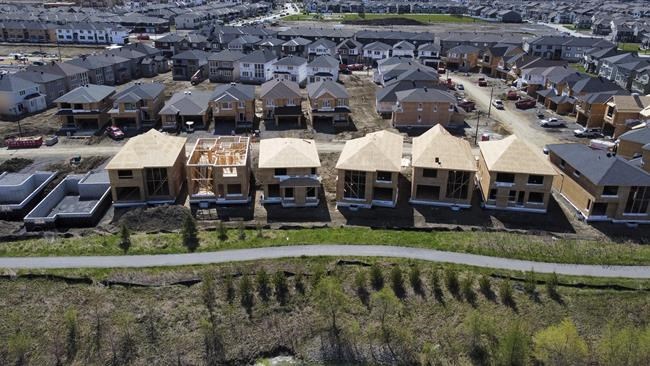Construction of new homes picked up in several of Canada's major cities last year, said the Canada Mortgage and Housing Corp. (CMHC), but the agency foresees a slowdown as interest rates weigh on building costs.
Growth in residential construction was mixed across six key areas the CMHC studied in 2022, but the bulk saw more shovels hit the ground, the national housing agency said in its annual housing supply report released Wednesday.
Housing starts — a measure of when construction on homes begins and a key indicator of how Canada is addressing housing supply gaps — increased in Toronto, Calgary, Edmonton and Ottawa, CMHC said.
In Toronto alone, housing starts rose 7.7 per cent last year to reach their highest level since 2012, as strong presales spurred higher condominium apartment construction.
Residential construction set a new record in Ottawa as the city further densified. CMHC found 2022 was the first time in more than 20 years that apartment starts accounted for more than 50 per cent of total housing starts in the city.
However, housing starts remained unchanged in Vancouver and decreased in Montreal.
“In some centres, seasonally adjusted housing starts began moving lower at the end of 2022 and early 2023," said Francis Cortellino, senior specialist for housing market analysis at CMHC.
"The higher interest rate environment will likely slow construction activity in more centres in 2023."
Yet demand for housing remains high.
Even with the COVID-19 pandemic triggering more construction, inventories of new and unabsorbed homes — homes that are done being built but not yet sold — are currently at historic lows. CMHC warned that might make it harder for people to access housing.
The housing supply report was released the same day as CMHC published monthly housing start numbers that showed the annual pace of housing starts in March fell 11 per cent compared with February.
The seasonally adjusted annual rate of housing starts in March came in at 213,865 units, down from 240,927 in February.
Meanwhile, the annual rate of urban starts in the month fell 12 per cent with 192,545 units.
The annual rate of multi-unit urban starts fell 11 per cent to 151,769 for March, while the pace of single-detached urban starts fell 16 per cent to 40,776.
The annual rate of rural starts was estimated at 21,320 units for the month.
The six-month moving average of the monthly seasonally adjusted annual rate was 240,669 in March, down six per cent from 254,658 in February.
This report by The Canadian Press was first published April 19, 2023.
Tara Deschamps, The Canadian Press



